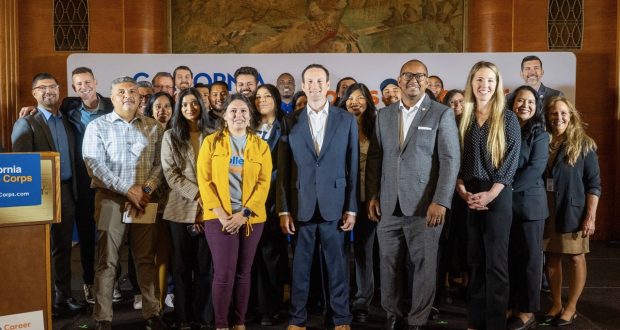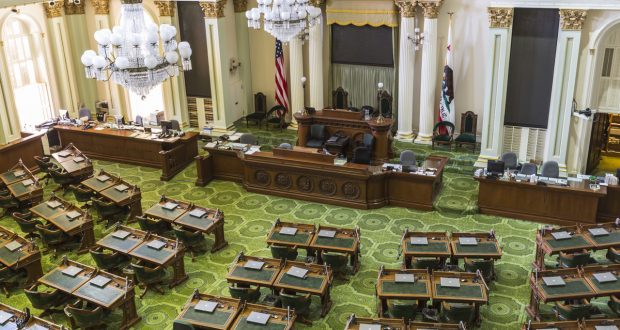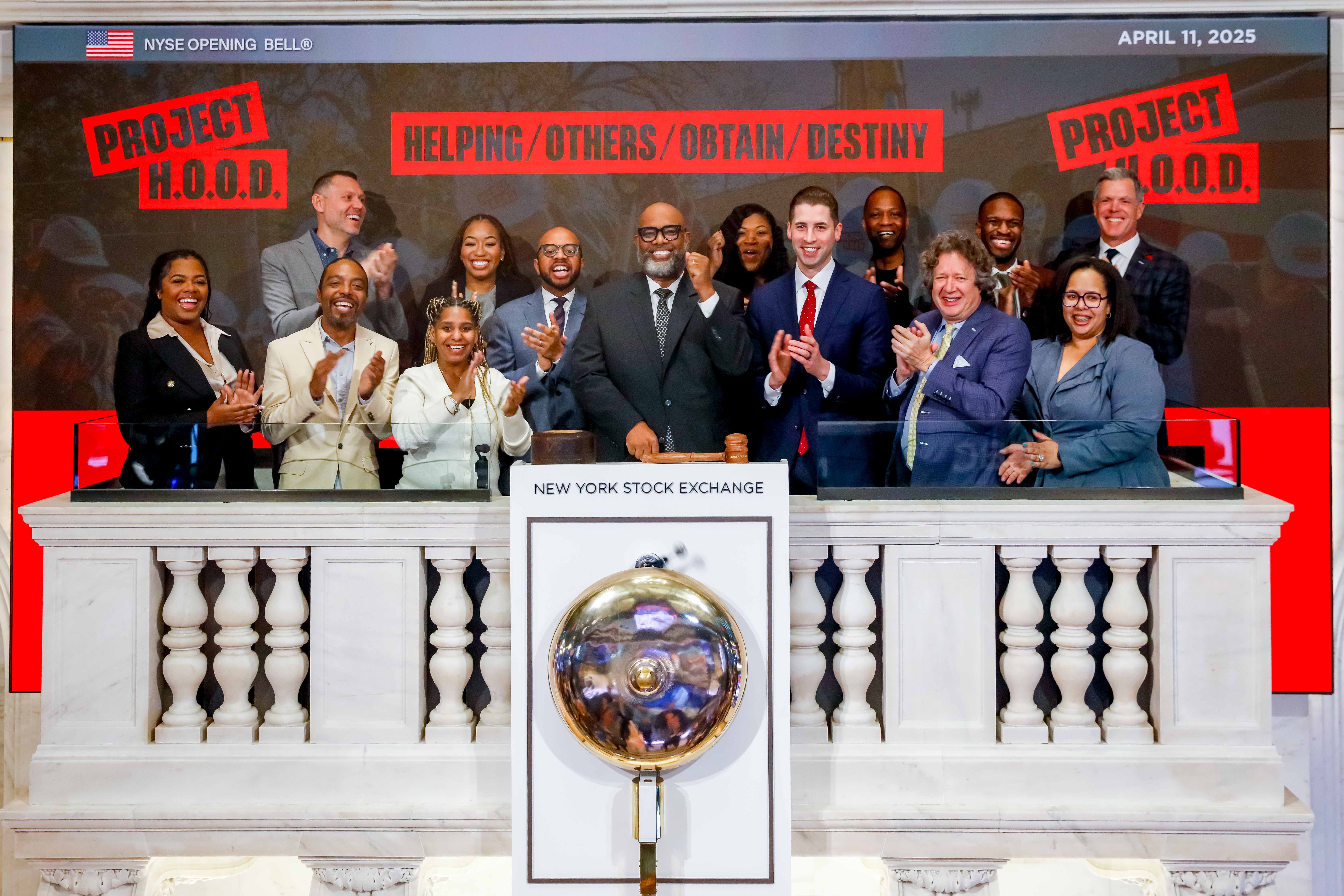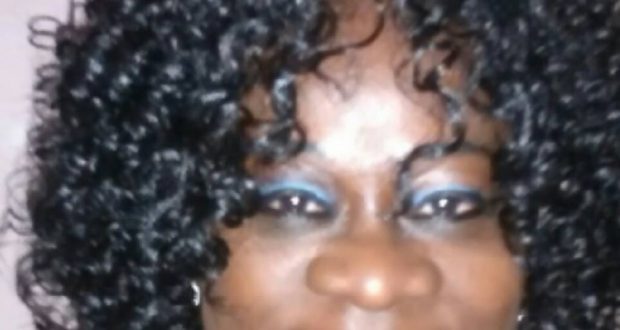By Edward Henderson | California Black Media
On May 11, the Essie Justice Group (Essie), along with Bay Area leaders, community organizations, and advocates gathered at the Alameda County Superior Courthouse in Oakland to call attention to the damage inflicted on families and communities by the mass incarceration of Black women over generations. The event was part of the annual National Bail Out Campaign (NBO), #FreeBlackMamas.
The NBO #FreeBlackMamas campaign raises awareness about the human and financial costs of incarceration. The press conference focused on the voices and experiences of Black women, who have been disproportionately affected by mass incarceration. This is especially significant given that the number of women in prison has been growing at twice the rate of men in recent decades, with 80% of women in jail being mothers.
Essie is the nation’s leading advocacy organization for women with incarcerated loved ones taking on the injustices created by mass incarceration. They focus on organizing women who have loved ones in prison, including one in four women and one in two Black women in the US. Founded by Gina Clayton-Johnson in May 2014, Essie is a community of Black-led, Black-centered, multicultural organizers with a membership body of mothers, daughters, grandmothers, siblings, and partners of incarcerated people.
Since 2017, Essie has led Black Mama’s Bail Outs in California in the weeks leading up to Mother’s Day. To date, they have posted bond for 13 Black women totaling of $1.9 million. This year, in collaboration with the National Bail Out collective, two Black mothers and caregivers (one in Alameda County and one in Los Angeles County) will be released on bond so they can spend Mother’s Day with their children and families.
Betty McKay, a member of Essie and a formerly incarcerated woman, hosted the event. She set the tone of the gathering by introducing the speakers, sharing her personal story, and leading the audience in the Essie chant ‘We come for ours, and when we come, we win.’
“I hold these bailouts close to my heart because I know what it means to be caged,” said McKay. “We believe in a future where our loved ones are free. What I know to be true, is that we are here because we are still buying our folks freedom, just like slavery days. Mass incarceration is the new slavery. We will continue to buy freedom until we abolish mass incarceration.”
Gina Clayton-Johnson, Executive Director of Essie, spoke passionately about the organization’s mission and shared some of the innovative ways Essie is changing bailout culture. For women who have lower incomes, affording bail is impossible when the median bail amount in California is $50,000, five times the national average. Under her watch, 473 mothers and care givers have been freed nationwide.
“We don’t allow the bail industry to see not one penny of this money that we raise,” said Clayton-Johnson. “We don’t get the discounted rate; we don’t get to pay the 10% that the bail industry lets you pay and then go into debt with them. We raise all the money, give it to the court to buy the person’s freedom. Once that case is disposed of, we get that money back so we can continue to bail out more Black women.”
Clayton-Johnson highlighted the fact that when Back women are released from prison, they can provide support to others who have been victims of the prison industrial complex.
“There are tens of thousands of people who come home from jails and prisons every single week. Where do you think they go? When people come home from prison they are most likely coming home to the arms of a Black woman. What we are here to say is free Black mamas and to remind you that Black women are the blueprint for re-entry.”
Assemblymember Mia Bonta (D-Oakland) spoke about her commitment to the cause of freeing Black women.
“I am making sure our public defenders get funded. When we have a system that puts five dollars to the district attorney’s office and one dollar to the public defender’s office, that is broken,” she said. “Black mamas are going to jail because we’re criminalizing poverty. We need to ensure we are actually building pathways to work and rehousing when our mamas come back to us, when our brothers and sisters come back to us, they do not have any doubt they have a home to go to and can immediately provide for her family.”
Shaundrika Price, a beneficiary of an Essie bond and services, testified about how Essie has impacted her life. A mother of five children, Price was imprisoned, and her bail was set at $200,000. Unable to pay, Price remained in Lynwood Women’s Jail in Los Angeles for months as her trial continued to be pushed back.
“Every person I got to know at the women’s jail had mental health needs and trauma like I did,” said Price. “What people don’t understand is that many of us locked up in the system have not been convicted of a crime. Locking women and Black mamas up is not the answer.”
Brendon Woods, a public defender from Alameda County, was the last speaker. He gave a passionate speech about the injustices surrounding the bail industry.
“This criminal justice system is hellbent on caging Black mamas because they cannot afford to post their bail,” said Woods. “This has nothing to do with public safety. This is about wealth, a system built on money, power, privilege, and White supremacy.”
“California itself holds about 40,000 people a year in a cage and they haven’t been convicted of a crime,” Woods continued. “They are presumed innocent, and they are caged. What this means is that people cannot afford to buy their freedom, or they are coerced into a plea deal for their freedom. It should not be that way.”
For more information or to donate, visit the National Bailout Campaign.
 Westside Story Newspaper – Online The News of The Empire – Sharing the Quest for Excellence
Westside Story Newspaper – Online The News of The Empire – Sharing the Quest for Excellence






